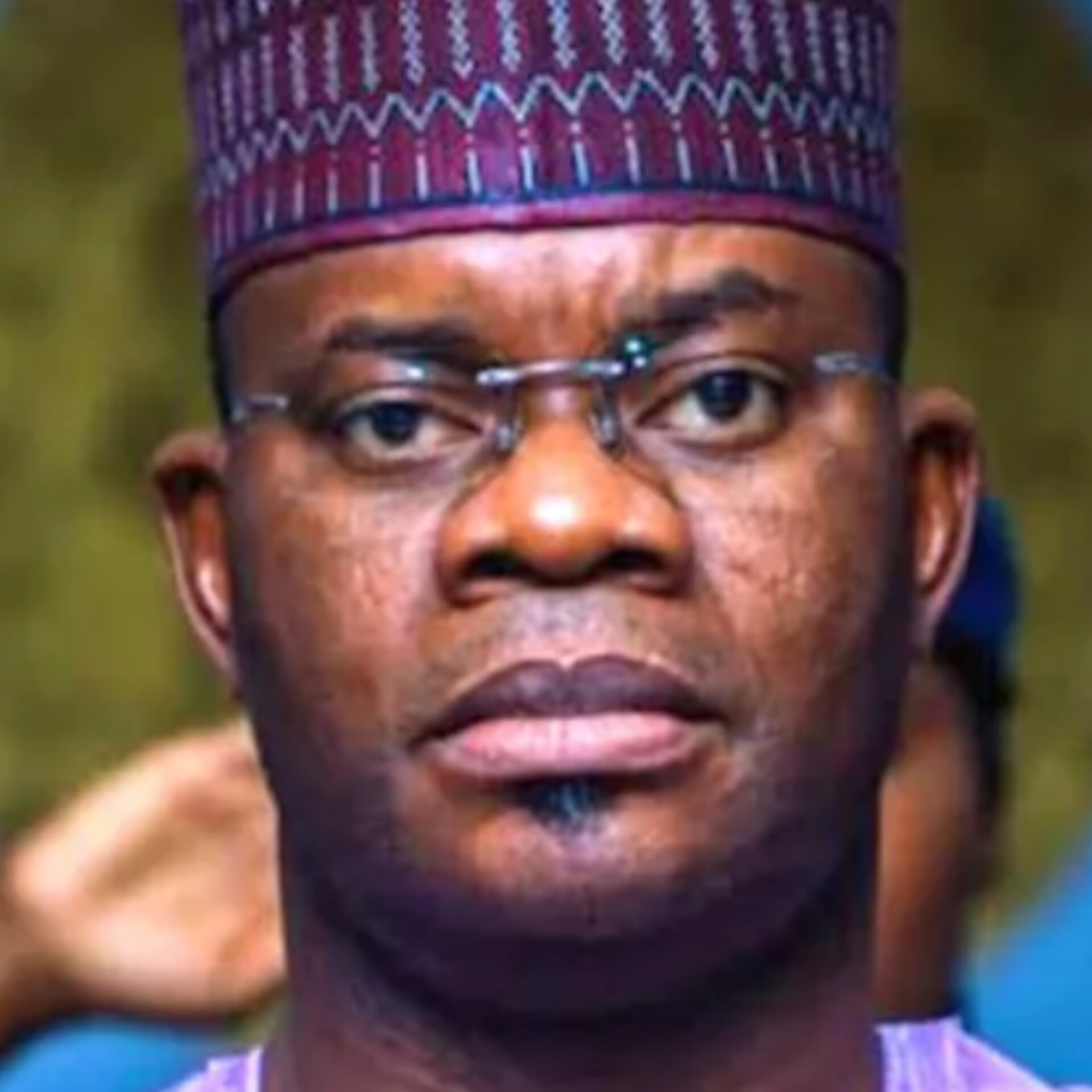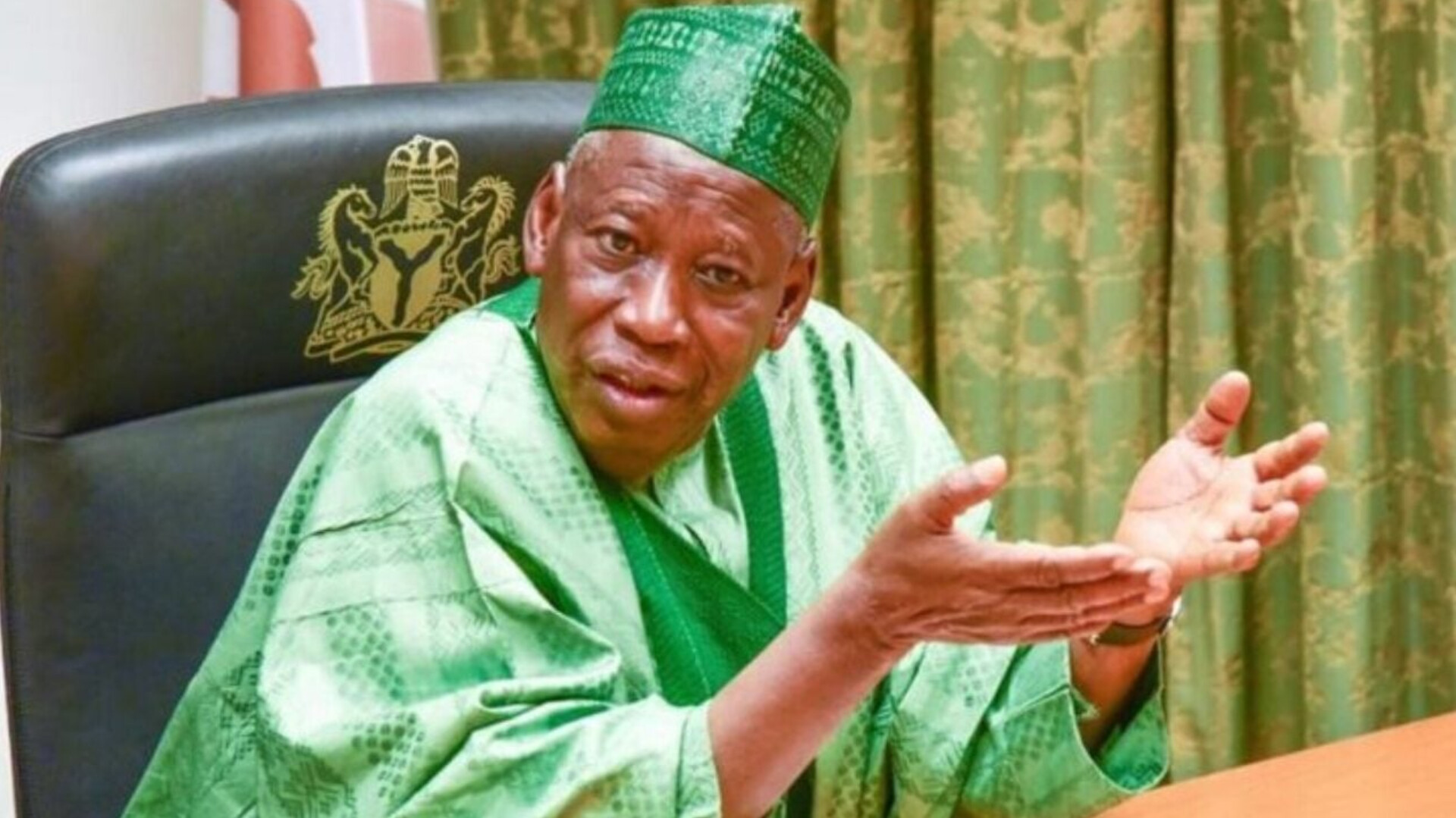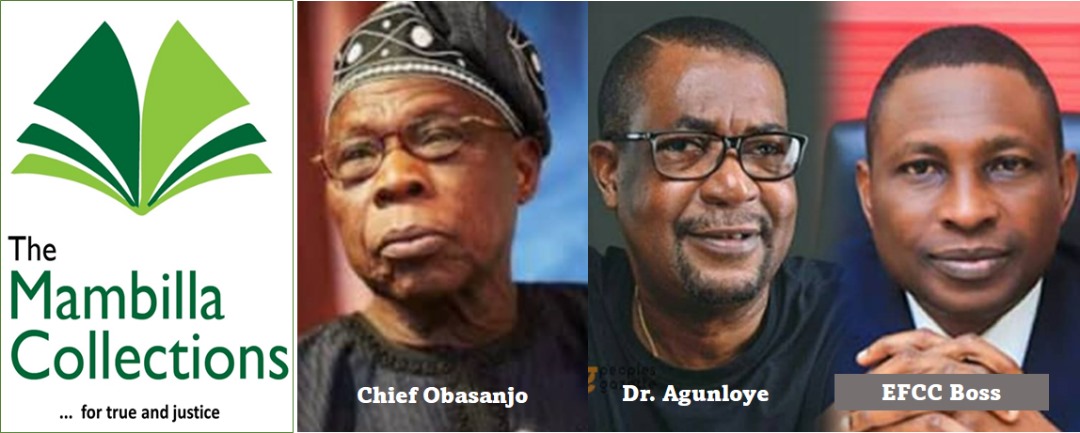Law
The Court of Appeal comes to judgement like a Daniel

By Chief Mike Ozekhome
Like Nostradamus, the man who saw tomorrow in my above writeup I had thoroughly analysed the judgement in the Umahi case before the Federal High Court, Abuja, the very day it was delivered. I had concluded that the Federal High Court was wrong to have ordered the removal of the Governor and Deputy Governor of Ebonyi state from office over their defection from the PDP to the APC. I had predicted then that the judgement will not stand the acid test or furnace of fire of appellate court decisions and that it will definitely be set aside.
Today, the Court of Appeal, Enugu judicial division, vindicated me fully,like Nostradamus ,the man who saw tomorrow.The Court of Appeal, Enugu judicial division,today unanimously dismissed the Appellants’appeal and held that the defection of Governor David Umahi and his Deputy, Kelechi Igwe, “may be immoral or even improper…it must be acknowledged that membership of political parties is an exercise of the freedom of association guaranteed by section 40 of the Constitution..”
The intermediate court,while commending the learned trial Judge,Njoku, J,also held that to have acceded to the argument of the Appellants’ counsel for the trial court to fill an assumed lacuna in the Constitution by extrapolating consequences for elected legislators provided for in sections 68(1)(g) and 109(1)(g) , so as to make elected Governor and his Deputy to vacate their offices, would “degenerate to judicial rascality”. The court emphasized that it is not the duty of courts to make laws or speculate as to what the intention of the legislature will be outside the express words used in the statute.
As regards the Constitution, “the duty is even higher and it is beyond the courts to insert or manufacture words into the express provisions of the “Constitution”, the court warned.
The intermediate court carefully distinguished the old ( now extinct) cases of AMAECHI VS INEC (2008) LPELR-446(SC); FALEKE VS INEC (2016) 18 NWLR ( 1543), and found them gravely irrelevant in the new dispensation of our constitutional regime, having regards to the provisions of section 141 of the Electoral Act,2010, as amended, and section 285(13) of the 1999 Constitution, as altered. Aside these provisions ,the aforementioned cases have since been consigned to the vehicle of judicial historical oblivion to remain there as relics of the past and artefacts of a national museum. See the new regime of the relevant and appropriate cases by the apex and intermediate courts that now insist that votes wholly belong to candidates ,and not to political parties, which merely serve as their vehicles and agents to canvass for and gather votes for the candidates :
CPC & ANOR VS OMBUGADU & ANOR (2013) LPELR-21007(SC); OZOMGBACHI VS AMADI & ORS ( 2018) LPELR-45152( SC); NGIGE VS AKUNYULI (2012) 15 NWLR( PT 1323) 343; NWANKWO & ANOR VS INEC & ORS (2019).LPELR-48862(CA); HARUNA VS APC & ORS(2019) LPELR-47777( CA).
The Court of Appeal also found that once a person has been elected Governor and he takes the oath of office and allegiance, he can only be removed in accordance with the provisions of sections 180, 188 and 189 of the 1999 Constitution. See MARWA VS NYAKO (2012) LPELR-7837 (SC).
The Court of Appeal was emphatic that defection from the political platform on which a Governor was elected, to another political party, is not one of the factors that can make him lose his seat and cease to be a Governor under the Nigerian Constitution.
The court further held that the case of AG FEDERATION VS ABUBAKAR (2007) 10 NWLR ( PT 1041) 1, was the relevant and apposite authority of the Supreme Court which ought to guide all lower courts in matters concerning defection, using the doctrine of stare decisis.
One major significant pronouncement in this case is that even in the case legislators’s defection, as held in ABEGUNDE VS ONDO STATE HOUSE OF ASSEMBLY & ORS (2015) LPELR -24588 (SC), the consequential order to make them suffer the consequence of loss of their seat is “for bye election to be conducted and not for the vacated seat to be allocated to either the political party or the runners up at the election “.
As we await the final court of the land’s determination of an appeal that will certainly arise from this epochal pronouncement, let me again make it clear for future reference point : the Constitution of Nigeria is clear. No court can read into it what is not contained therein. It is trite, the legal maxim, ” EXPRESSIO UNIUS EST EXCLUSIO ALTERIUS” ( the express mention of one thing is the exclusion of others. See EHUWA V ONDO STATE INDEPENDENT ELECTORAL COMMISSION (2006) LPELR-1056(SC); UDOU & ORS VS ORTHOPEDIC HOSPITAL MANAGEMENT BOARD & ANOR ( 1993) LPELR-3308( SC); SHINKAFI & ANOR VS YARI &ORS (2016) LPELR-26050 (SC).
Some may decide,in their analysis, to pontificate and to talk politics,sentiments, emotions,ethics and morality. In my humble opinion, pulpits,mosques, or even shrines are more appropriate places for such ineffectual liberal disquisitions and moral platitudes. I speak the law, without any partisan colouration. I speak the lex lata ( the law as it is); not the delege ferenda ( the law as you would want it to be). We were so taught in our classes in Jurisprudence.
Law
EFCC to arraign Bello on Thursday over alleged N80.2b money laundering

The Economic and Financial Crimes Commission, (EFCC) has indicated it will on Thursday, April 18, 2024 arraign a former governor of Kogi State, Yahaya Adoza Bello before a Federal High Court sitting in Abuja.
The antigraft agency said Bello will be arraigned before Justice Emeka Nwite alongside three other suspects, Ali Bello, Dauda Suleiman and Abdulsalam Hudu on 19- count charges bordering on money laundering to the tune of N80, 246,470, 088.88
The arraignment is being perfected following a warrant of arrest and enrolment order granted the EFCC by the court on Wednesday, April 17, 2024.
Count one of the charges reads: That you, Yahaya Adoza Bello, Ali Bello, Dauda Suliman, and Abdulsalam Hudu( Still at large), sometime, in February, 2016, in Abuja within the jurisdiction of this Honourable Court, conspired amongst yourselves to convert the total sum of N80, 246,470, 088.88 which sum you reasonably ought to have known forms part of the proceeds of your unlawful activity to wit, criminal breach of trust and you thereby committed an offence contrary to Section 18(a) and punishable under Section 15(3) of the Money Laundering ( Prohibition) Act, 2011 as amended”.
Count 17 of the charges read: “That you Yahaya Bello between 26th July 2021 to 6th April 2022 in Abuja within the jurisdiction of this Honourable Court aided E-Traders International Limited to conceal the aggregate sum of N3081,804,654.00( Three Billion, Eighty One Million Eight Hundred and Four Thousand Six Hundred and Fifty Four Naira) in account number 1451458080 domiciled in Access BankPlc, which sum you reasonably ought to have known forms part of proceeds of unlawful activity to wit, criminal breach of trust and you thereby committed an offence contrary to Section 18(a), 15(2) (d) of the Money Laundering ( Prohibition) Act, 2011 as amended and punishable under Section 15( 3) of the same Act.
Count 18 of the charges reads: “That you Yahaya Adoza Bello sometime in November 2021 in Abuja within the jurisdiction of this Honourable Court indirectly procured E-Traders international Limited to transfer the aggregate sum of $570,330.00( Five Hundred and Seventy Thousand , Three Hundred and Thirty Dollars) to account number 4266644272 domiciled in TD Bank, United States of America which sum you reasonably ought to have known forms part of proceeds of unlawful activity to wit, criminal breach of trust and you thereby committed an offence contrary to Section 15(2) (d) of the Money Laundering ( Prohibition) Act, 2011 as amended and punishable under Section 15( 3) of the same Act”.
“The Commission’s attempt to execute the Warrant of Arrest lawfully obtained against Bello met stiff resistance on Wednesday, April 17, 2024. The security cordon around the former governor’s residence in Abuja was breached by the current Governor of Kogi State, Usman Ododo who ensured that the suspect was spirited away in his official vehicle.
“As a responsible law enforcement agency, the EFCC exercised restraint in the face of the provocation, waiting for his arraignment on Thursday, April 18, 2024.
“It is needful to state that Bello is not above the law and would be brought to justice as soon as possible.”
Law
Court bars Ganduje from parading himself as member of APC

Yhe Kano State High Court has granted an ex parte order restraining the National Chairman of the All Progressives Congress (APC), Abdullahi Ganduje, from parading himself as a member of the party.
The court ordered that Ganduje must refrain from presiding over all affairs of the National Working Committee of the APC.
The application waa said to have been granted by Justice Usman Na’abba on Tuesday, following an ex parte motion filed by Dr. Ibrahim Sa’ad on behalf of two executive members of Ganduje’s ward, Dawakin-Tofa Local Government Area, the Assistant Secretary, Laminu Sani and Legal Adviser, Haladu Gwanjo (plaintiffs), who were part of the nine ward executives who suspended Ganduje on Monday.
The court directed the four parties (respondents) joined in the matter, including the APC, NWC, APC Kano State Working Committee, and Ganduje, to henceforth, maintain status quo ante belum as of April 15th,2024 pending the hearing and determination of the substantive suit on April 30th 2024
Justice Na’abba, also held as prayed, stopped State Working Committee APC Kano from interfering with the legally and validly considered decision of executives of Ganduje ward, essentially on action endorsed by a two-thirds majority of the executives as provided by the party constitution.
The ex parte order read,, “An order is hereby granted directing all parties in the suit APC (first), APC National Working Committee (second), Kano State Working Committee APC (third), Dr. Abdullah Umar Ganduje (fourth), to maintain status quo ante belum as of April 15, 2024.
“The order thereby restraining the first respondent (APC) from recognising the fourth respondent (Ganduje) as a member of APC and prohibiting the fourth respondent (Ganduje) from presiding over any affairs of the NWC and restraining the state Working Committee from interfering with the legally and validly decision of the ward executives of Ganduje ward.
“That the fourth respondent (Ganduje}is prohibited from parading himself as a . member of APC or doing any act that may _ portray him or seem to be a member of APC pending the hearing and determination of the
substantive suit.”
Nine members of the Ganduje ward proclaimed the suspension of the National Chairman of the APC over the allegation of corruption slammed on him by the Kano State Government.
The nine APC executives said they were prompted to act following a petition written by one Ja’afaru Adamu, a member of the AP from the National chairman’s polling unit.
in the petition, Adamu complained over allegations of corruption charges against the
former governor just as he urged the ward leaders to investigate the matter to redeem the dented image of the party and the implication on President Bola Tinubu’s fight against corruption.
Although the chairman and secretary of the ward failed to act on the petition filed en April 8, 2024, nine members of the executives, led by the legal adviser, acted upon the petition, a decision that led to Ganduje’s suspension.
Law
Mambilla Update: Agunloye heads to Appel Court over ruling fundamental rights

Justice Obiora Egwuatu at the Federal High Court in Abuja has dismissed a Suit filed by Agunloye in June 2023 to restrain EFCC from harassing him and breaching his fundamental rights because of the ongoing International Arbitration on Mambilla Power Project
The points made by Agunloye in the Civil Suit which had dragged for over nine months had become irrelevant or expired in reality because the EFCC, the Respondent, had, while the case was in progress, declared Agunloye wanted, detained him, maltreated him in detention.
The antigraft agency also arraigned him before another court and remanded him in prison until the court granted him bail.
The court under Justice Egwuatu, however, did not consider the merits of the case largely on the ground that EFCC has the power to carry out its statutory duties and can not be stopped by the Court. On this basis, Justice Egwuatu dismissed the suit and awarded costs.
Agunloye’s lawyers have expressed preparedness in respect of the appeal considering that the court admitted basing its ruling on the suit being “an attempt to use the instrumentality of the Court to shield the Applicant from criminal investigation and to interfere with the statutory authority of the Respondent to investigate crimes or allegations of same in line with the EFCC Act.”
It is believed that the duties of EFCC must be performed in accordance with the law, and the court has the powers to stop any infraction by the EFCC in the course of performance of its duties. Such does not amount to interference with the statutory duties of EFCC but a legal checkmate of its powers to deter likely abuse.
With the Agunloye heading to
appeal against the Judgement, the case is far from being over, and the Court of Appeal will take the opportunity to look at the case extensively.
-

 Crime6 months ago
Crime6 months agoPolice nabs Killer of Varsity Lecturer in Niger
-

 News3 months ago
News3 months agoFCT-IRS tells socialite Aisha Achimugu not to forget to file her annual returns
-

 Appointment7 months ago
Appointment7 months agoTinubu names El-Rufai, Tope Fasua, others in New appointments
-

 News From Kogi5 months ago
News From Kogi5 months agoINEC cancells election in 67 polling units in Ogori-Magongo in Kogi
-

 News From Kogi8 months ago
News From Kogi8 months agoEchocho Challenges Tribunal Judgment ordering rerun in 94 polling units
-

 News7 months ago
News7 months agoIPOB: Simon Ekpa gives reason for seperatists clamour for Biafra
-

 Metro4 weeks ago
Metro4 weeks ago‘Listing Simon Ekpa among wanted persons by Nigeria military is rascality, intimidation’
-

 News3 months ago
News3 months agoKingmakers of Igu/ Koton-Karfe dare Bello, urge him to reverse deposition of Ohimege-Igu

